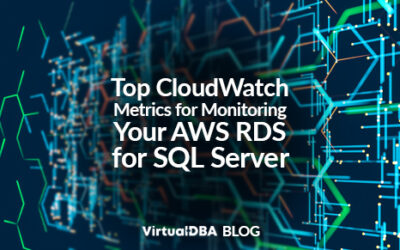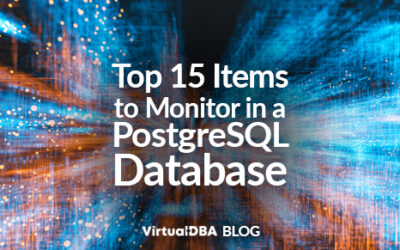In the era of cloud computing, where data is the new currency, databases are the backbone of modern businesses. They store, manage, and retrieve critical information for decision-making and operations. However, ensuring cloud databases' seamless functioning requires...
Welcome to our blog, which is more than just a record of our experiences. It’s a resource.
Our blog is an invaluable resource for anyone struggling with the challenges of managing a database, applications, or clouds.
We understand the difficulties involved in troubleshooting, building, improving, securing, and operating these platforms,
and we’re here to share our insights and expertise with you. Browse through our collection of blog posts below,
and don’t hesitate to leave your comments and feedback.
PostgreSQL Vacuum Best Practices for a Clean Database
PostgreSQL needs a little TLC to keep running smoothly like any good database. One important maintenance task is vacuuming, a process that removes clutter and reclaims storage space. In this post, we'll delve into the why, what, and how of vacuuming in PostgreSQL,...
Azure Monitor: Best Practices for Monitoring Azure Managed Databases
Azure Monitor provides comprehensive tools for monitoring the health and performance of your Azure-managed databases, including Azure Managed SQL, Azure Database for PostgreSQL, Azure Database for MySQL, and Azure Database for MariaDB. By following best practices, you...
Azure Monitor Best Practices: Essential Metrics for SQL Managed Instances
Ensuring the performance and availability of your Azure Managed SQL databases is crucial for maintaining a smooth user experience and maximizing business productivity. Azure Monitor offers a robust suite of monitoring tools, but navigating the vast array of metrics...
Commvault Error: Backup process could not find log [~/mysql/data/log-bin.xxxx~] in the given transaction log location
Commvault, a comprehensive data protection and management solution, integrates with MySQL databases for backup operations. It leverages MySQL's binlog positions to ensure consistent and efficient backups of MySQL databases. By tracking the binlog positions, Commvault...
Top CloudWatch Metrics for Monitoring Your AWS RDS for SQL Server
Maintaining peak performance and robust health for your AWS RDS for SQL Server instances is crucial for any SQL-driven application. Enter CloudWatch, your AWS monitoring powerhouse, armed with a plethora of metrics. But navigating this vast realm can be daunting. Fear...
Top 15 Items to Monitor in a PostgreSQL Database
PostgreSQL, commonly referred to as Postgres, is an open-source object-relational database management system (ORDBMS) known for its extensibility and compliance with SQL standards. It has been actively developed for over 35 years and has earned a solid reputation...
Solved! mysqldump: Couldn’t execute ‘show create table table’
You might see this error if trying to perform a logical backup on a table that is corrupted. mysqldump: Couldn't execute 'show create table `table`': Table 'table’ is marked as crashed and last (automatic?) repair failed (144) This error occurs because mysqldump...
keepalived daemon: The Secret Sauce to a HAProxy Dual Set Up
If you need a High Availability (HA) setup to balance connections to your MariaDB cluster nodes, you should consider using HAProxy. HAProxy set up in a dual configuration (primary and secondary) will further contribute to your redundant HA topology. This blog is...

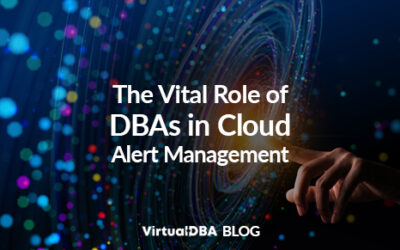
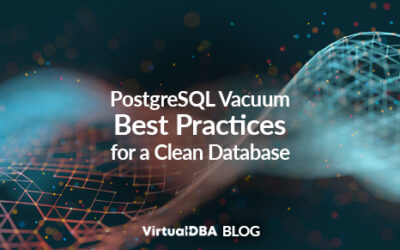
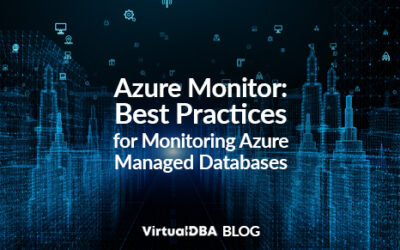
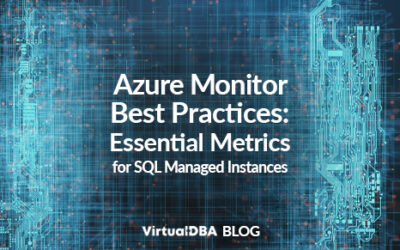
![Commvault Error: Backup process could not find log [~/mysql/data/log-bin.xxxx~] in the given transaction log location](https://virtual-dba.com/wp-content/uploads/Commvault-Error-Backup-process-could-not-find-log-400x250.jpg)
